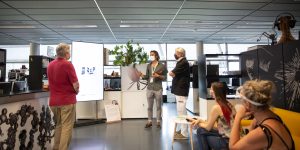
Projects
Projects
-
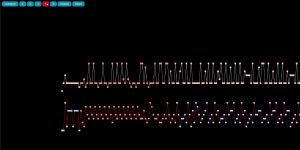
Sounding Letters
When AI Turns Letters Into Music
Ars Electronica Futurelab and Ars Electronica Center celebrated their 25th anniversary in 2021. As part of the celebrations, Sounding Letters was created: it utilizes the initial letters of the two institutions as a musical theme, which was used to compose a piece of music with the help of the AI system Ricercar.
-
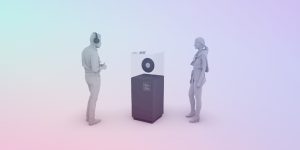
Memo Futurum
Sharing Future Visions Across Time
Memo Futurum is an invitation to engage with our personal and collective visions of the future. The public was able to participate via website and submit a voice message until the end of 2021. The contributions were then transferred to vinyl records, which will only be opened again in 25 years, when the cycle begins…
-
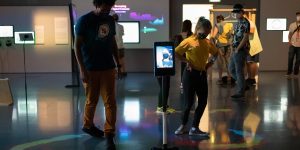
OutReach
Physical Interaction for Telepresence Robots
OutReach is a solution that plays to the strengths of telepresence robots. By adding remotely controlled actuators to light switches, elevator buttons, or any other controls in a given environment, OutReach provides a way of interaction with the remote surroundings.
-
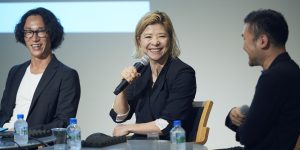
Ars Electronica Tokyo Initiative
Co-Creating Innovation and Future Society
Since 2014, Hakuhodo and Ars Electronica have collaborated in the joint project Future Catalysts. To further expand these activities, the two institutions launched a mission driven innovation community named “ARS ELECTRONICA TOKYO Initiative (AETI).”
-
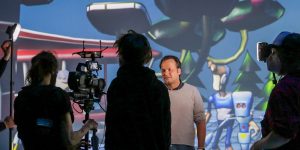
Deep Virtual
Instant Hybrid Reality in Video Production
Ars Electronica Futurelab’s video production system Deep Virtual is able to merge virtual into physical reality in real time and to transmit this hybrid reality instantly. With its development, the Lab has set a milestone in the history of Deep Space 8K : The idea for live hybrid video production takes the broadcasting of virtual…
-
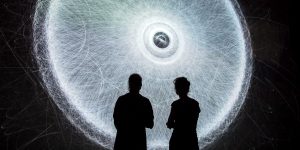
Resonant Media
Exhibition on the Possibilities of 8K Visualization
“Resonant Media – Possibilities of 8K Visualization” took an artistic and scientific approach to explore the new possibilities of 8K from diverse perspectives. The exhibition in Tokyo in 2021 presented a diverse range of projects that explored the future of 8K beyond the existing frame.
-
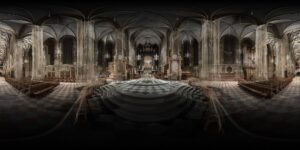
The Translucent St. Stephen’s Cathedral
Immersive Journey in Stereoscopic 8K
As part of the European R&D project Immersify, the data from spatial measurement of St. Stephen in Vienna with more than 21 billion laser points was converted into a translucent representation of the cathedral. The result is an innovative interactive and immersive journey through the building in stereoscopic 8K in the Ars Electronica Center’s Deep…
-
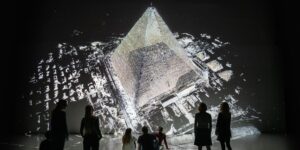
The Great Pyramid in 3D
Journey Through the World Wonder in 12K
The Great Pyramid in 3D, From the BBC Series Ancient Invisible Cities is an interactive immersive experience for the Ars Electronica Center’s Deep Space 8K. Visitors can take a deep virtual dive inside the oldest wonder of the ancient world, the Great Pyramid of Giza. They are able to move interactively through the 360° 3D…
-
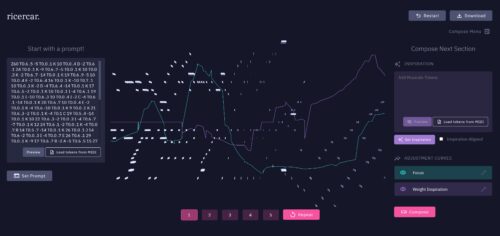
Ricercar
Interactive AI-Based Composition System
What does it mean to compose together with a machine? What forms of musical authorship emerge when generative systems no longer function merely as tools but actively engage in artistic processes? Ricercar is a research software that operates precisely at this intersection between human artistic intuition and machine autonomy – not to resolve this tension,…
-
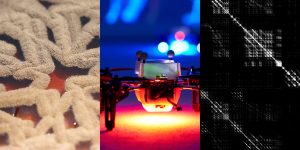
Future Ink
In Creativity, Where Is My Soul?
The Future Ink Project is a research project to explore the future of creativity from all aspects of ink. Various prototypes were developed in the course of Future Ink, from using tablets and drones to paint to visualizing brainwaves and body signals as immersive three-dimensional ink.

